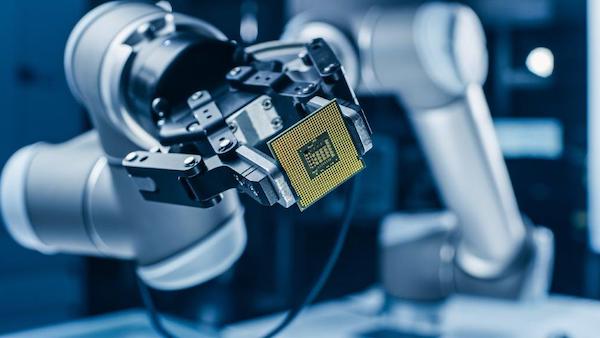The Covid-19 pandemic has thrown industrial chip production into a deep crisis on a global scale. Since the first lockdown, it has caused a downsizing of their supply and that of semiconductors, while demand for electronic devices (telephony, computers, consumer electronics) for working or studying at home has soared.
Chips are active components to be mounted on electronic boards and enable the operation of machines and equipment: from the automotive to the electro-medical sector, through telecommunications, smartphones, set-top boxes to measuring and control instruments, air conditioners and much more.
L'8 February, the European Commission presented the 'Chips act', a series of legislative, regulatory and financial measures to boost the Union's semiconductor and processor production, with the aim of raising Europe's share of global microprocessor production from 9% to 20%. With a huge mobilisation of funds - 43 billion euros - Europe is trying to respond to a global shortage that is penalising many production sectors, in particular the automotive industry.
What is happening in the automotive sector?
The automotive sector has suffered most from the shortage of chips and semiconductors, facing not only a drop in supply but also a contraction in sales, so chipmakers have preferred to favour the fastest growing companies.
Overall new car sales in the EU fell by 2.4% to 9.7 million units in 2021, according to the latest figures from the European Automobile Manufacturers' Association (Acea), new car sales in the EU fell by 2.4% to 9.7 million units. This decline is also the result of a shortage of semiconductors that has negatively affected car production throughout the year, but especially in the second half of 2021. In fact, total car registrations in the EU last year stood at 3.3 million units below pre-crisis sales in 2019. In addition to this picture, there is a fundamental need, which must always be guaranteed even in a period of crisis and contraction: the safety of electronic devices.
"The shortage of key components for electronic units has also slowed down validation projects: in some cases we have seen situations where manufacturers have no material available to create prototype units, leading to significant delays in closing projects and starting production," says Pietro Vergani, COM Business Unit Manager for the Product Service Division of TÜV Italia. TÜV Italy. "The current situation is also having a significant impact on the validation and testing of devices in our laboratories. In a situation where compliance with safety and quality requirements cannot be waived in any case, it becomes key to be able to adapt schedules to the availability of test units: the ability to support our customers with flexible schedules, postponing tests or adapting test plans to the availability of units become special aspects of our services".
You might also be interested in:
Hybrid and electric vehicles: TÜV certifies the skills of technical specialists



















